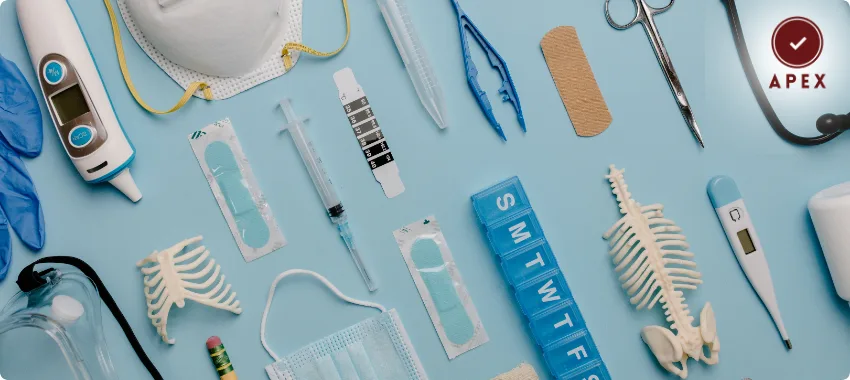ISO 13485 Certification

ISO 13485: Quality Management System for Medical Devices
The medical device and healthcare industry is vital in protecting the lives of human beings. Be it surgical devices, diagnostic devices, implants, or healthcare software, the safety and quality of medical devices ought to be guaranteed throughout the medical device lifecycle, including design and development, production and distribution, and post-market activities. ISO 13485: Quality Management System for Medical Devices offers a quality management system that is internationally renowned and recognized to assist organizations in coping with such exacting requirements.
ISO 13485 provides assistance to medical device manufacturers and suppliers in order to establish, implement, and maintain a quality management system (QMS) designed to achieve and sustain good product quality, regulatory conformity, and patient safety. It is well accepted by regulatory agencies around the globe such as the FDA, European Commission, and other health agencies, and is therefore a mandatory certification to be obtained by companies aiming to gain access to the world market.
The ISO 13485 and its Necessity in the Medical Device Industry
Medical device industry regulation has been described as one of the most strict since it has a direct correlation with the health and safety of patients. ISO 13485 offers a uniform way of organizational handling of risk, fulfilling regulatory requirements, and providing safe and effective medical devices consistently.
-
Product Quality and Patient Safety
ISO 13485 places much emphasis on risk management, product traceability, and conformity to regulations with the aim of producing devices that are safe, effective, and match the needs of the users over the lifecycle of such products. -
Global Regulatory Compliance
The ISO 13485 certification proves the adherence to international regulations and provides the companies the opportunity to enter the international market and fulfill the requirements of authorities, such as the FDA (US), MDR (EU), Health Canada, TGA (Australia), and others. -
Risk-Based Approach
With risk management incorporated into all operations, including design controls, post-market surveillance, and all in between, ISO 13485 significantly reduces the chances of device malfunction, recalls, and harm to patients. -
Enhanced Business Productivity
The standard assists organizations to optimize production processes, documentation control, non-conformities reduction, waste minimization, and eventually, enhance productivity and profitability. -
Supplier Control and Management
ISO 13485 demands vigorous control of suppliers and sub-contractors which ensures that the product quality is maintained throughout the whole chain of supply.
Important elements of ISO 13485
ISO 13485 is based on the process approach and puts emphasis on continuous improvement, product safety, and compliance with the regulations. Its significant aspects are:
- Documentation of Quality Management System: Policies, procedures, manuals, and records which show compliance.
- Management Responsibility: Management commitment to quality, resource allocation, and ongoing improvement.
- Risk Management: Built into the design, production, and post-production to help deal with any possible failures in advance.
- Design and Development Controls: Strict design validation, verification, and documentation to be performed to demonstrate that products are as intended to be used.
- Supplier Control: The suppliers are met with given quality and regulatory requirements.
- Product Traceability and Identification: Full product history traceability to enable recalls and post-market activities where deemed necessary.
- Process Validation and Monitoring: All processes shall always give products that are within specification.
- Corrective and Preventive Actions (CAPA): The organized management of non-conformities to eliminate their repetition.
- Post-Market Surveillance: Continuous observation of the performance of a product once it is distributed.
Who requires ISO 13485 Certification?
ISO 13485 applies to a large number of organizations that have the following involvement in the medical device industry:
- Medical Devices Manufacturers
- Contract Manufacturers/ OEM Suppliers
- Research and Development Organization
- Medical Software Developers
- Medical Device Distributors and Importers
- Calibration Laboratories and Testing Laboratories
- Healthcare Equipment Service Providers
- Certification Bodies and Regulatory Consultants
- Sterilization Service Providers
ISO 13485 will help you raise the processes involved in your business whether you produce medical equipment or the high-risk implantable devices to the utmost principles of safety and quality.
- ISO 9001 Certification
- ISO 14001 Certification
- ISO 45001 Certification
- HACCP Certification
- ISO 22000 Certification
- ISO 22716 Certification
- Halal Certification
- ISO 27001 Certification
- ISO 22301 Certification
- ISO 41001 Certification
- ISO 50001 Certification
- ISO 10002 Certification
- ISO 10004 Certification
- ISO 26000 Certification
- ISO 31000 Certification
- ISO 20400 Certification
